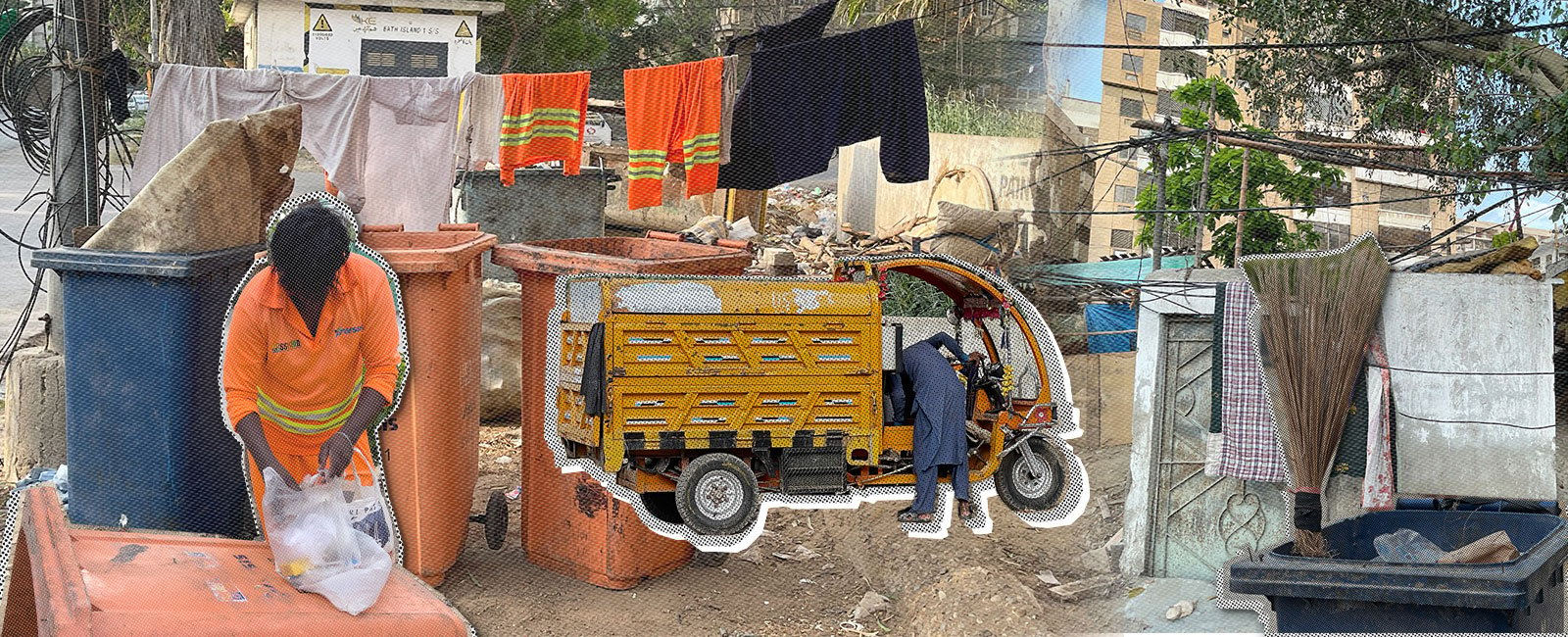How Karachi sanitation workers face sweeping exploitation
These sanitary workers, predominantly from marginalised and minority communities, face daily challenges that reflect broader societal neglect and discrimination

It is just before 6am on a May Day in Karachi, with temperatures expected to soar past 40°C, and Manoj* has just woken up on a footpath in Bath Island, an affluent neighbourhood in Karachi's Clifton area, to start his day as a sanitary worker.
Along with him, almost a dozen other workers sleep on the footpath under the open sky. Most of them belong to the Hindu community from the Mirpurkhas district in Sindh and are tasked with garbage collection in the district South for one of the foreign contractors of the Sindh Solid Waste Management Board (SSWMB).
"I have to wake up early to get in line for the washroom; its door does not close properly which is very inconvenient,” says Manoj*. The washroom is located within a small room labelled as a "store room," where some workers also seek refuge at night to sleep. It's dim inside the room, with sunlight being the only source of light and several bed linen and blankets stacked on top of each other near the entrance.
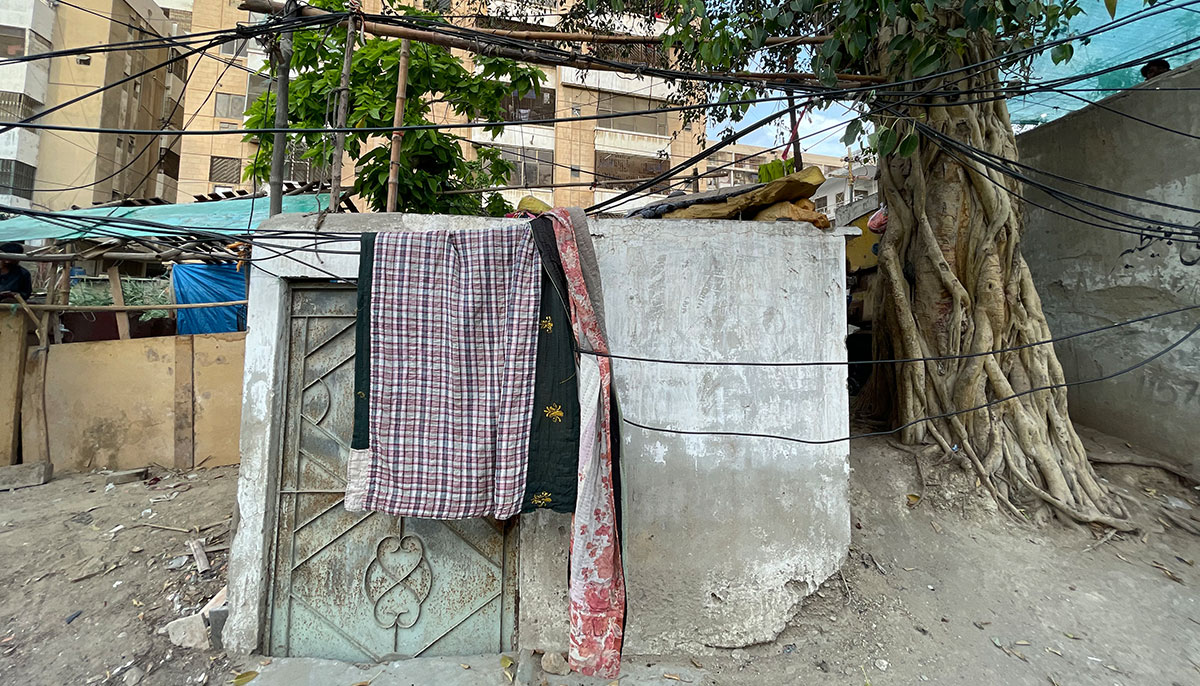
Manoj* hails from Digri, the second largest town of Mirpurkhas District, where his family of eight is primarily involved in agriculture. He was brought here by his relative, who is also his supervisor, to support his family financially, as they could not make ends meet following the destruction caused by the 2022 floods in Sindh.
Manoj* is underage, although private companies engaged in sanitation contracts with the SSWMB are bound by agreements prohibiting the employment of individuals under the age of 18 as sweepers. The board took notice in December 2023 of private contractors not adhering to child labour laws, particularly the Sindh Prohibition of Employment of Children Act, 2017.
Employed by one of SSWMB’s foreign contractors, the minor says he cleans the Bath Island road, the main road, and some others for Rs15,000 a month. This is far below the legal minimum wage, which was fixed at Rs32,000 for unskilled workers by the Sindh Minimum Wages Board (SMWB) and is applicable since July 1, 2023. The board also claimed to have launched a campaign in December 2023 to check violations of wage rules by contractors, warning them that non-payment of the minimum wage would lead to serious action.
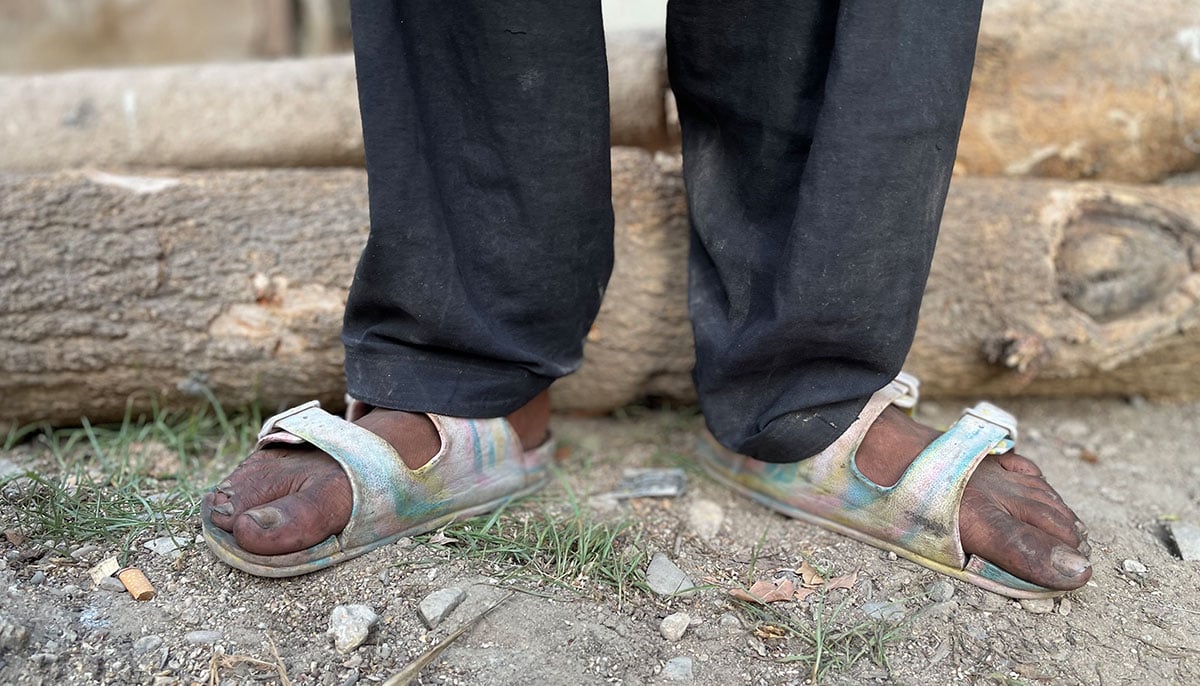
Bimal*, who hails from the same town as Manoj*, had to move to the metropolis due to flood-induced hardships. “I was studying in tenth grade (matric) at a government high school but left my education midway to support my parents, two sisters and a brother after floods destroyed our crops and threw us out on the street,” shared Bimal*.
When asked what his routine looks like, he said: "I wake up, pick the broom, and garbage can and get going.”
For this work, Bimal* is compensated with Rs20,000 a month. Occasionally, he gets a Sunday off, but other times he doesn't, even though he is entitled to all Sundays off and should be paid twice the amount if he works on his weekend.
"But that does not happen; I had to work on two Sundays in April,” he said.
This means he was not only paid Rs12,000 less but also lost an additional Rs2,133 for working on two Sundays in April.
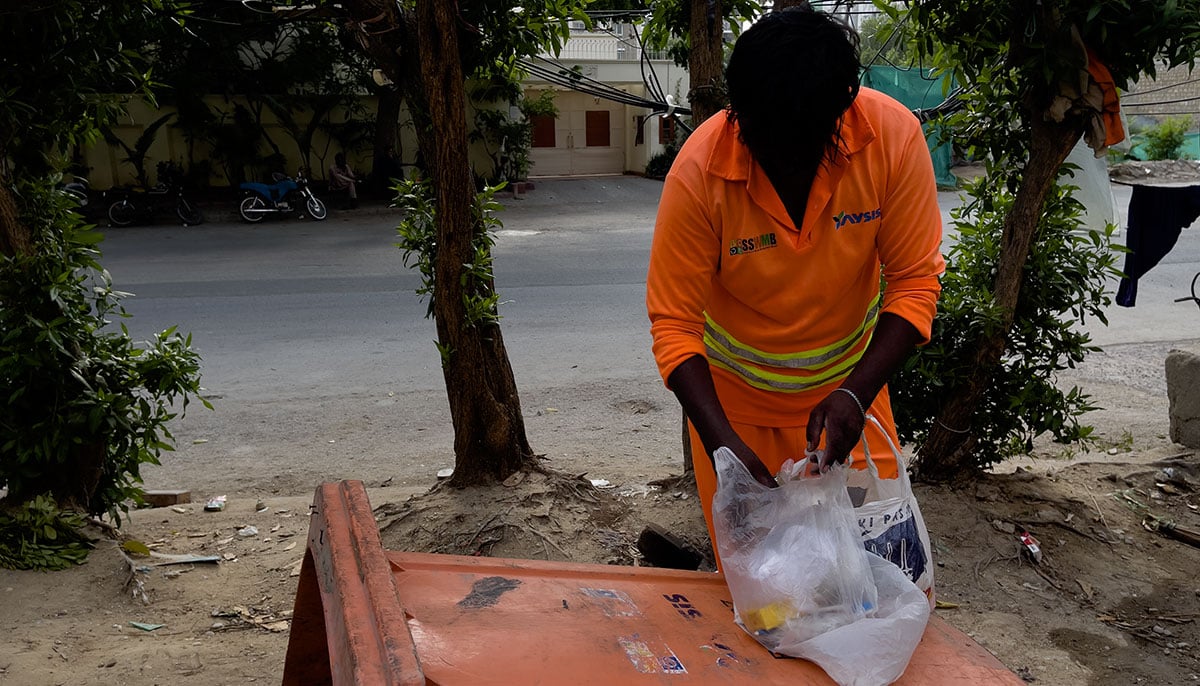
Although he claims to be 18, Bimal* looks much younger. He has already experienced the hardships of living in a new and big city. His money and phone got stolen recently, so he hasn’t talked to his family in a while. Having his uncle, who also works as a sweeper, around him is a sense of relief, he says.
Hailing from different cities of Sindh, these workers lack proper shelter, adequate restroom facilities, and even regular meals, relying on charity organisations providing cooked food in the city.
"We've been instructed to relocate near Cantt Station because residents in the neighbourhood objected to us sleeping on the sidewalks outside their homes," Ramesh* from Kot Ghulam Muhammad, Mirpurkhas, lamented. "These are powerful people. What can we do? We're just trying to support our families and send money back home."
Many of these workers, including Manoj*, Bimal*, and Ramesh*, supplement their income by collecting scrap, mainly cardboard, and selling it further to earn between Rs150 to Rs250 daily. This additional income helps them cover their day-to-day expenses and enables them to send as much money home as possible from their monthly salary.
Later in the evening around 4:30 pm, Sanjay* was anxiously waiting for his supervisor who had promised that the workers would receive their salary today. “It is the 10th of the month, I am not sure if we will even get paid today or not,” he says.
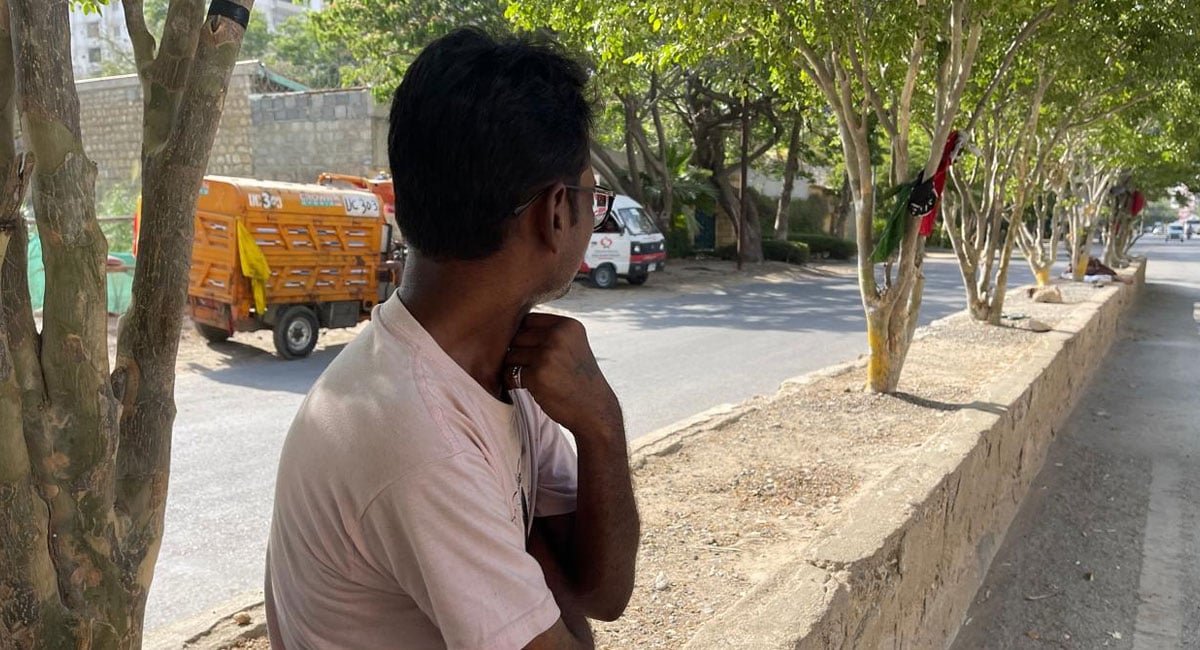
Working as a sanitary worker, he provides for his family of 11. He previously worked as a cleaner in a private office, handling various tasks like dusting and bathroom cleaning, until he was let go due to excessive absences.
Sanjay* says that he took on cleaning jobs because there was no other work available. “Around 20 years ago, I worked as a chef at a Pakistani restaurant in Defence that eventually closed down. After that, I applied for multiple chef positions, even at top hotels, but I had no luck. This was largely because my name clearly identifies me as a Hindu,” he claimed.
He now earns Rs20,000 per month — despite Rs32,000 being the minimum wage in Sindh — after toiling from 8am to 3pm cleaning the streets one to nine of Bath Island, Clifton, for a SSWMB contractor. His wife also works as a sweeper. Residing near Cantt Railway Station Karachi with his wife, four sons, two daughters-in-law and three grandchildren, the couple’s income is primarily used to manage household expenses and pay a rent of Rs15,000. Additional expenses and groceries bring the total to Rs32,000.
"I sometimes feel embarrassed that my wife has to clean roads, but we have no other option. Things might have been different if I had been able to study beyond the 8th grade. I wanted my children to get an education, but only one of them could finish Matric. As a result, two of them work as cleaners in private companies, even though I wanted them to break away from this cycle,” Sanjay* said.
Despite working for different contractors of SSWMB for seven years, Sanjay* says he is deprived of benefits such as health coverage and social security because he is not a regular worker. "Why don't we receive these benefits? We are Pakistani, and both our domicile and passport are from here,” questioned Sanjay*.
'Modern day slavery'
The SSWMB has sublet its entire solid waste management task in Karachi to different foreign companies, who in turn have sublet the task to multiple layers of local subcontractors.
“These [foreigners] won’t come to clean our streets. They have never touched a broom,” said Naeem Sadiq, an activist who is fighting for the rights of sanitation workers.
Sadiq said that this system of multiple layers of contractors often leaves workers with either a day-to-day wage, no fixed pay, unfair pay cuts resulting in an uncertain employment and no job security. His organisation, Citizens’ Commission for Equality and Human Rights (CCEHR), claimed in its report that until 2023 “in no municipality of Sindh, the contracted sanitation workers receive the minimum legal wage”.
“The exploitation stems from the fact that these are not regular workers. In the first scheme of events, the question should be what kind of employees are they?
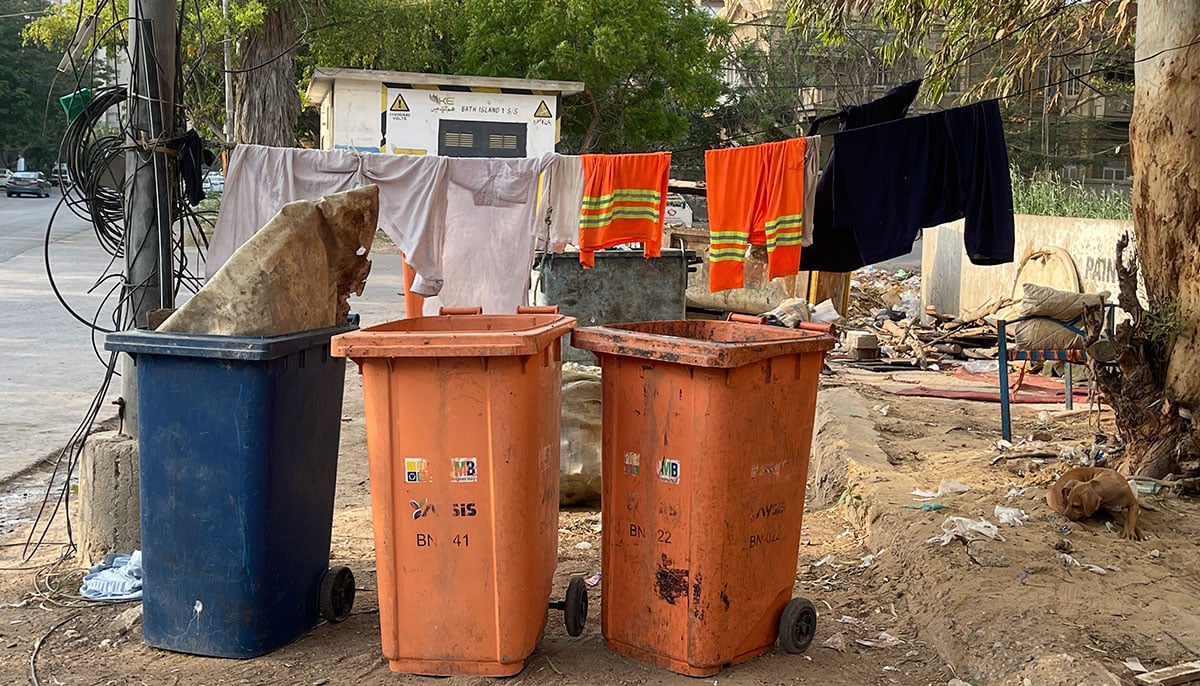
“The truth is that they are nobodies. They are not employees of anybody in the world.”
He termed money between Rs12,000 to Rs15,000 being stolen from these workers as equivalent to “cruelty and slavery” despite laws in place.
Currently, a worker earns between Rs500 to Rs666 per day, which totals Rs15,000 to Rs20,000 for a 30-day month. The law mandates four days off, implying that working all 30 days includes overtime, which should be paid at double the rate.
Highlighting the exploitation, Sadiq said: “This effectively means they work 34 days in a month, factoring in the overtime for the days off. If they fall sick and miss work, their pay for one day is cut. This situation forces workers to work continuously without proper rest, amounting to a violation of fundamental rights and likening their conditions to modern slavery.”
Health hazards
These workers are exposed to occupational and environmental health hazards, exacerbated by the lack of medical insurance or facilities provided by their employers. Workers endure sweltering heat, broken glass, sharp metals, and potential encounters with stray dogs, risking cuts, wounds, and injuries.
A 2022 study in the Pakistan Journal of Medical Sciences revealed that 96.5% of workers were not immunised against diseases like typhoid, hepatitis, and tetanus. Around 93% of workers do not wear any personal protective equipment like long boots, gloves, or masks while cleaning streets or sewers, exposing them to hazardous elements and resulting in chronic health issues.
Manoj* shared his experience of sustaining an injury from broken glass. He had to pay Rs500 from his own pocket for medical treatment but couldn't afford to take time off work, fearing deductions from his already meagre income.
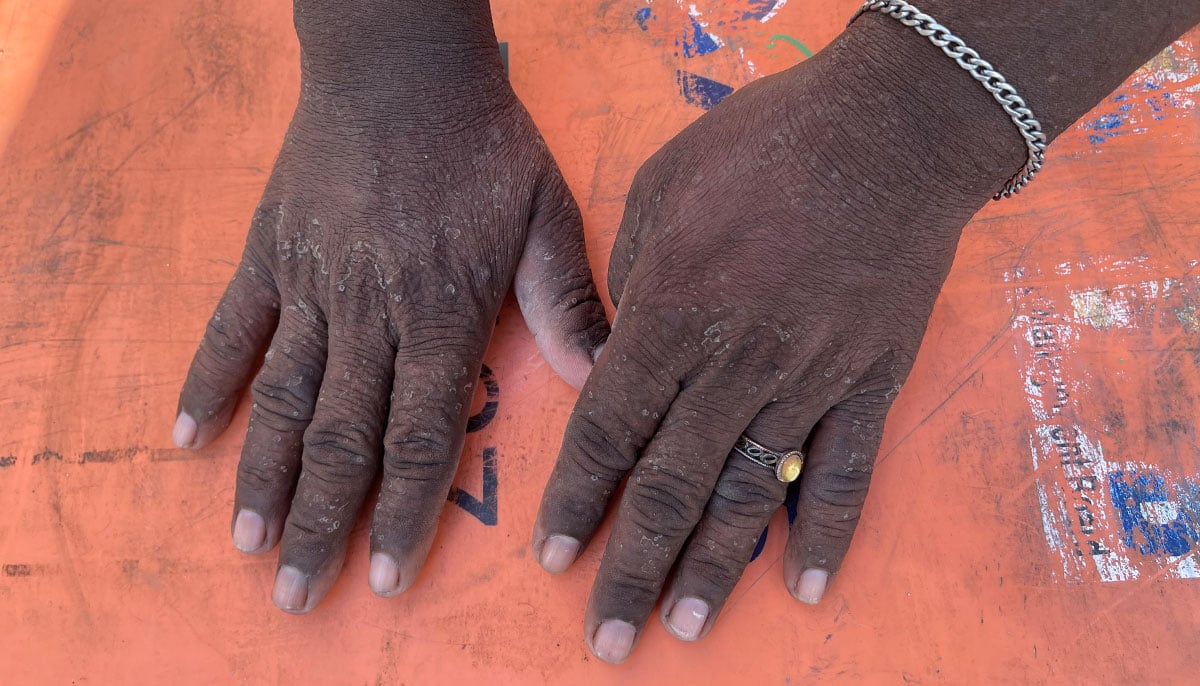
Among the workers interviewed in district South, most did not receive any protective gear, such as masks, gloves, or boots. Sanjay* mentioned that they were only given a high visibility or reflective safety vest to identify them as sanitary workers from a distance. He also received rubber boots. However, other workers reported they didn’t.
These workers are also at risk of accidents even in broad daylight due to people's disregard for traffic rules. Bimal* recounted an incident where he was injured in his leg after a car hit him near Teen Talwar signal while he was carrying a garbage can. Despite the injury, his supervisor shrugged it off, saying: “these are big people with big cars.”
Weight of history
In Pakistan, low-paid sanitation work is mostly done by religious minorities like Christians and Hindus, mainly descendants of Hindu Dalits who converted to Christianity. Despite Christians comprising 1.6% and Hindu and scheduled castes comprising 1.7% of the population, according to the National Commission for Human Rights’ 2022 Minority Report, they make up nearly 80% of sanitation workers.
Asif Aqeel of the Center for Law and Justice explains that the caste system, entrenched for thousands of years, assigns labour based on birth, relegating "untouchables" to menial tasks. These marginalised groups, labelled as "depressed classes" or "scheduled castes" during British colonial rule, face ongoing discrimination.
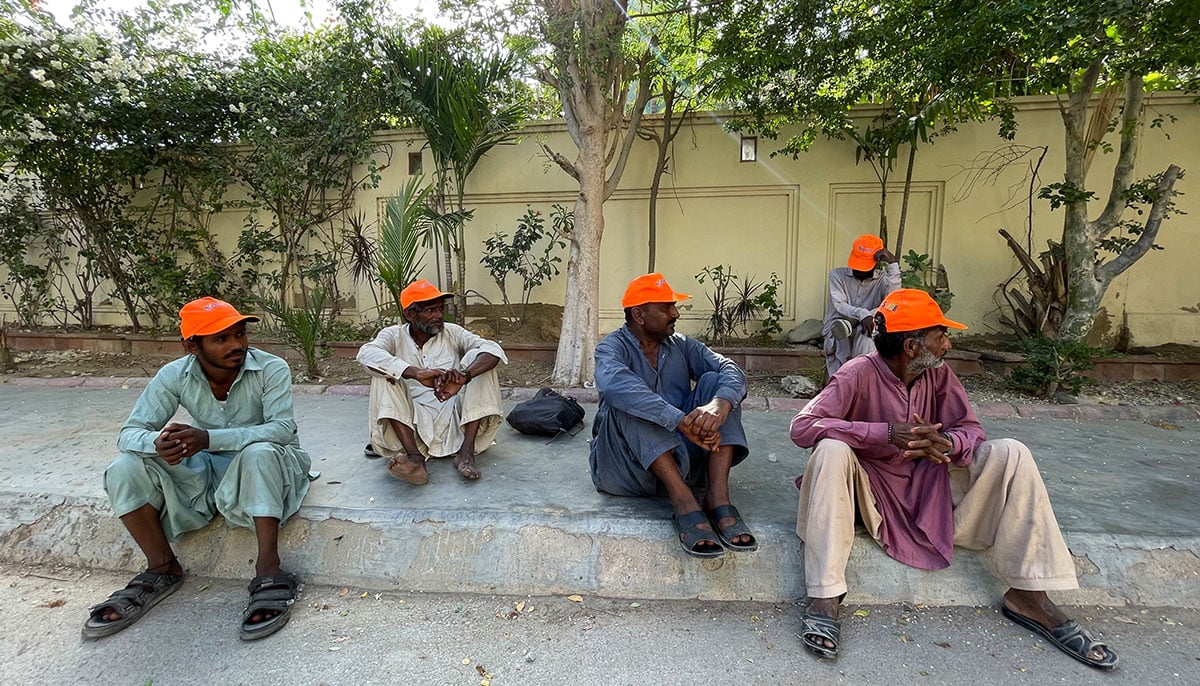
Sanitation work is essential, maintaining cleanliness in public spaces, but workers lack medical facilities, vaccinations, and safety protocols. Aqeel notes that injuries and deaths often go unrecorded due to low prioritisation of worker safety.
Christians and Hindus are deemed suited for "dirty" jobs, with their injuries or deaths unnoticed. Discriminatory practices see Muslim workers promoted or assigned less hazardous roles, highlighting systemic inequality in the sanitation sector, he added.
Examining Karachi’s outsourced waste management system
The SSWMB was established in 2014, under the Sindh Solid Waste Management Board Act, 2014 to manage and oversee the collection, transportation, recycling, treatment, and disposal of solid waste in the Sindh province.
Karachi generates a minimum of 0.5 kilograms of waste per person daily with a population of approximately 20.3 million, as per a waste audit conducted by the United Nations Human Settlements Programme (UN-Habitat).
SSWMB Executive Director Operations, Tariq Ali Nizamani, said around 10,000 to 12,000 tonnes of city's waste reach landfills daily. This number, he maintained, can fluctuate. The areas within SSWMB’s jurisdiction produce about 9,000 to 9,500 tonnes while disposal of 2,500 to 3,000 tonnes of waste is handled by allied agencies.
Nizamani explained that the board began phase-wise outsourcing in 2016 to private companies because waste management was previously handled by the concerned councils, District Municipal Corporations (DMCs), and Town Municipal Corporations (TMCs).
“The Act required concurrence from these councils before we could take over. After receiving approval, the tendering and bidding process started, and later a [foreign firm] commenced operations in these two districts.”
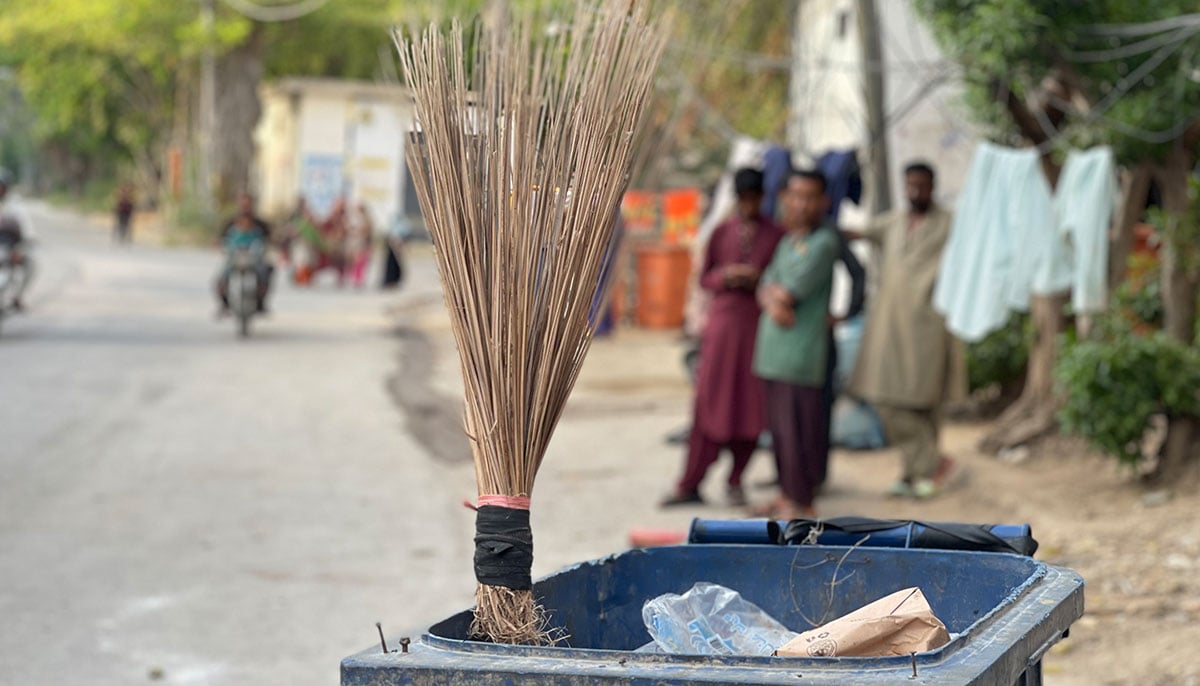
Contractors handle manual and mechanical sweeping, washing of streets and roads, door-to-door garbage collection, transferring waste to designated stations, and disposing of it at landfill sites. They currently engage more than 8,000 workers in Karachi’s seven districts, with additional support provided by 700 DMC workers each in South and East, totalling 1,400.
All of the contracts signed with these foreign entities emphasise compliance with various Pakistani laws and regulations, such as labour laws, environmental laws, and local government regulations. Failure to comply with these laws and regulations may result in penalties as specified in the contract terms.
"Our field team is responsible for ensuring compliance with contractor agreements, and we also conduct our own monitoring. Any complaints are taken seriously, requiring companies to explain their position. We have formally notified companies to follow minimum wage regulations set by the workers' wages board and have mandated all contractor firms to implement them,” Nizamani said.
When asked whether workers employed by SSWMB contractors received minimum wages in Karachi as of today, he said: “Companies have provided written undertakings that they are paying minimum wages to workers and must adhere to this commitment.”
“In District South, we asked for an explanation from the relevant contractor a month ago. They clarified that the total of Rs32,000 paid to workers included transportation, lodging, and boarding charges,” Nizamani responded to a question about potential violations. Currently, the minimum wage rule is being followed in Karachi; if it is not, the board has not received any complaints in this regard, he said.
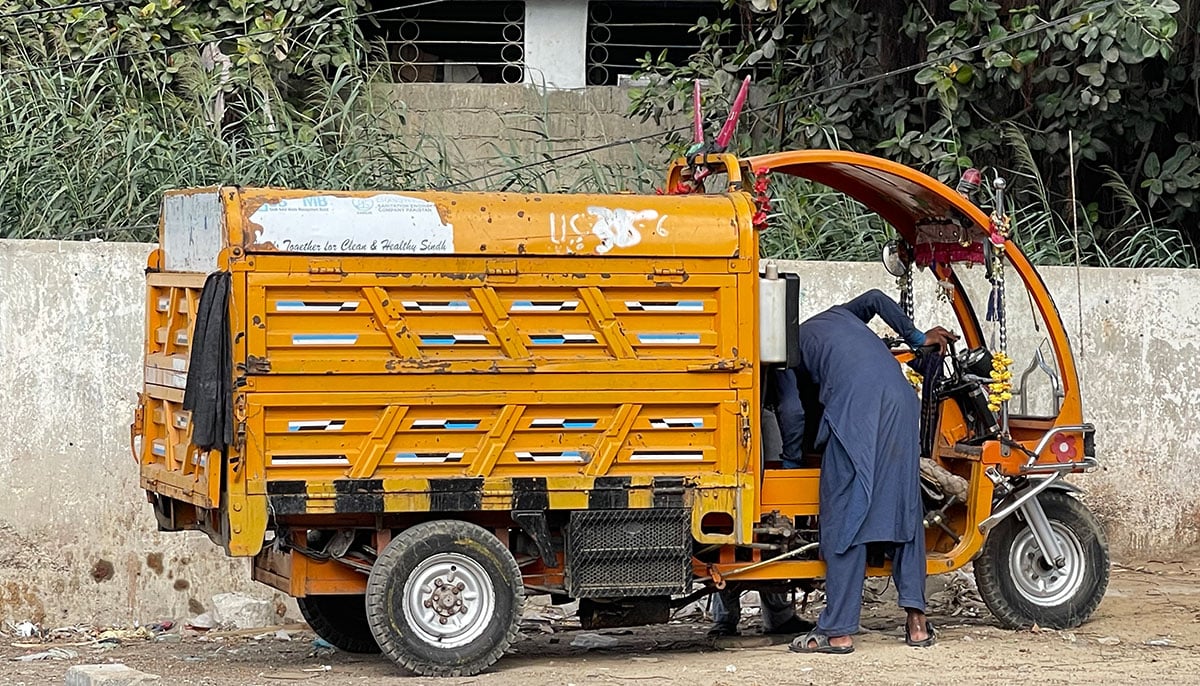
“If workers receive lodging and boarding from the company, deductions may occur accordingly and they might receive compensation for medical facilities or have insurance coverage, further contributing to the variation in payment arrangements.
“As Karachi battles a heatwave, the SSWMB has instructed companies to prioritise worker shifts during morning hours and avoid deployment during peak hours from 1 to 4 pm.
“Additionally, the board has instructed companies to ensure the provision of water at all times, use of caps and PPE (Personal Protective Equipment), and keeping checks on it through their field staff.”
Nizamani expressed confidence that these measures were being adhered to in the city currently.
“Efforts have been made to ensure system transparency, Nizamani said, including the introduction of a mobile app and a toll-free number (1128). “Additionally, a Central Management System (CMS) is in place with components such as vehicle tracking, staff attendance, garbage shifting from garbage transfer stations to landfill sites, real-time weighing of loaded and underloaded vehicles, and a payment mechanism based on net weight.”
Responding to child labour violations, Nizamani said: “Minors cannot be registered on our CMS (attendance) system, only adults can.”
"We received a complaint about child labour six to seven months ago but were informed that the children in question were not registered as sweepers but were accompanying their families. Nonetheless, we maintain a zero-tolerance policy regarding child labour involvement.”
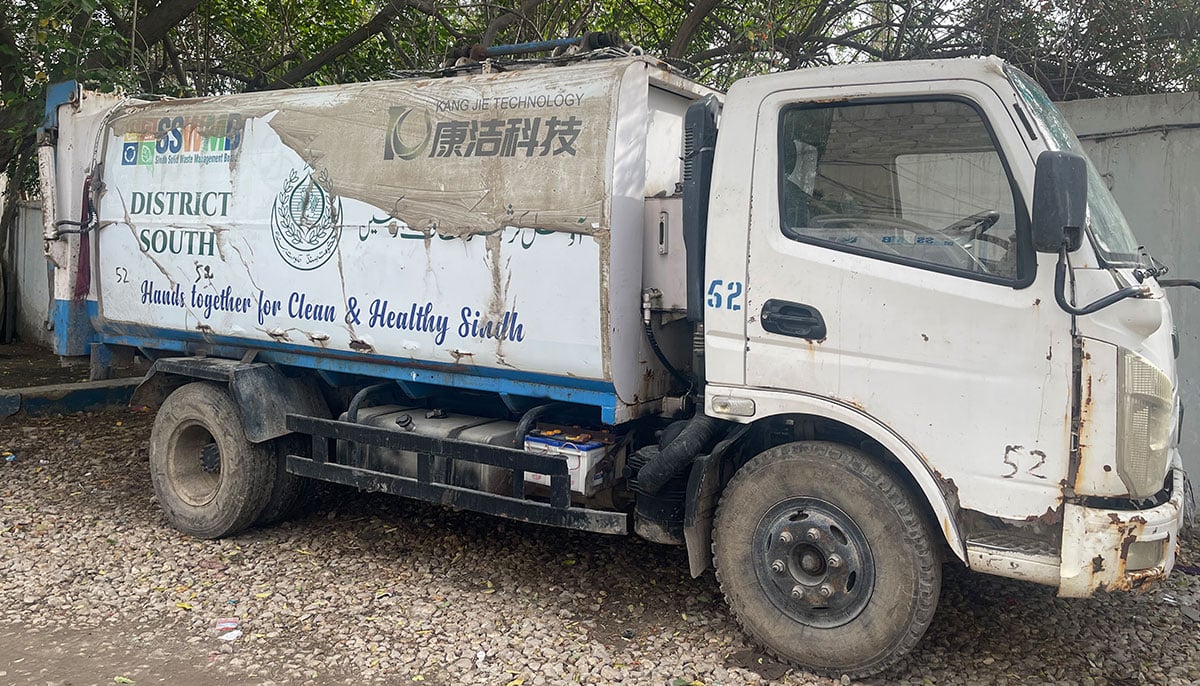
The undertaking was taken from contractors that no underage workers are employed by them and the board has not received any formal complaints in 2024 regarding child labour violations, claims Nizamani.
The SSWMB contractors have drivers, helpers, and management staff on their own payroll while sweeping staff are hired via third-party contractors.
To address some of the challenges, including minimum wage compliance, Nizamani said that previously, older contracts allowed contractors to sublet 30% of the solid waste management task to other subcontractors but as contracts were being reviewed, it was now being made a compulsion for sanitation staff, including sweepers, to be directly hired by SSWMB contractors, meaning they would be on their payroll directly instead of engaging these workers through subcontracting.
No hope for better future
Sanjay* believes that his community’s lack of education and skills has kept them at the lowest socio-economic level. He is determined to ensure his grandchildren receive education and find better jobs.
Bimal* does not see any hope of resuming his studies until his family’s financial situation improves. Manoj*, unaware of exploitation, hopes for better lodging facilities. Ramesh* says he has no choice except for living away from his children to help them secure a better future.
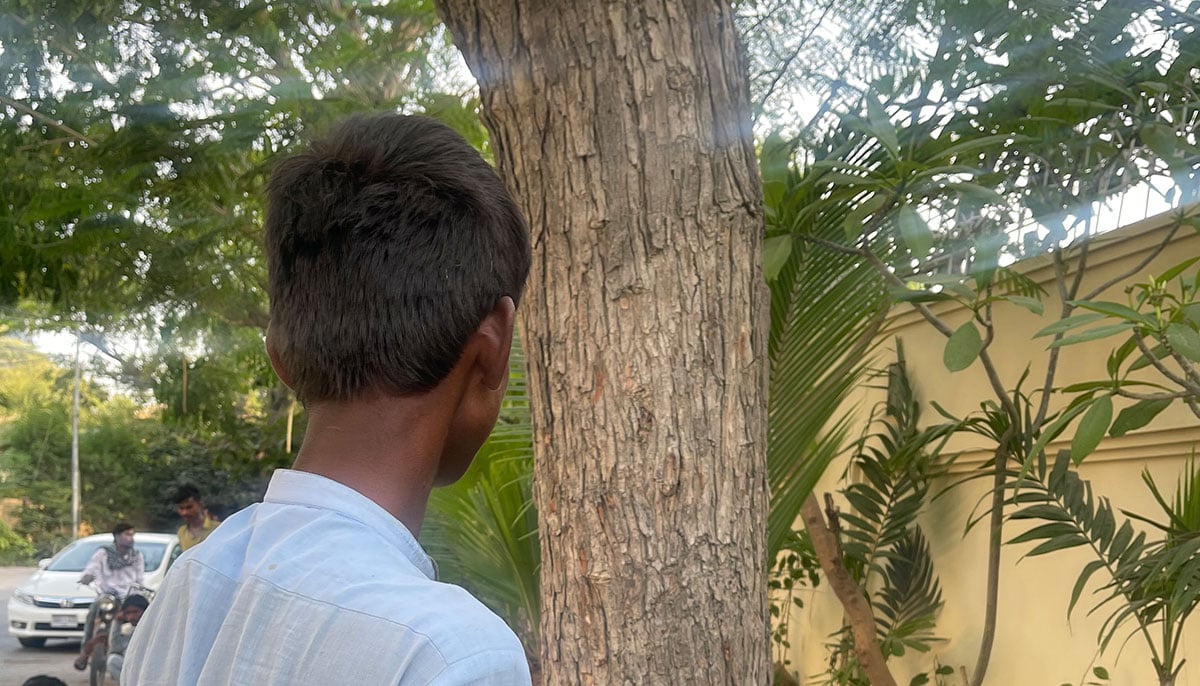
The plight of sanitation workers employed by SSWMB contractors highlights systemic issues of wage theft, exploitation, and unsafe working conditions. Despite formal agreements and laws in place, workers like Manoj*, Bimal*, Sanjay* and Ramesh* are subjected to substandard wages, inadequate living conditions, and health risks. These workers, predominantly from marginalised and minority communities, face daily challenges that reflect broader societal neglect and discrimination.
Activists say there is a need for systemic reform, enforcement, and empowering these workers through education, direct employment contracts, and strict adherence to labour laws to pave the way for a more equitable and humane working environment.
Hamna Iqbal Baig is a journalist based in Karachi. Her work on mis/disinformation, technology, social issues, culture and social entrepreneurship has appeared in various national and international publications. She posts on X @Hamnaibaig
Names of workers have been changed to protect their identities, while the names of the involved companies and authorities have been withheld due to their significant influence and lack of response to repeated requests for comment.
Header and thumbnail illustration by Geo.tv



